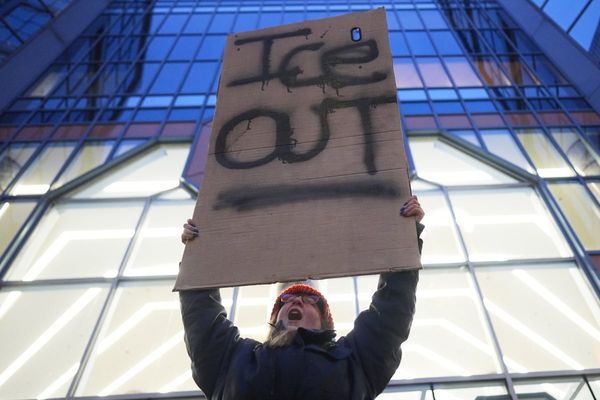The aunt of Zara Aleena has warned that women are not safe in Britain and raised doubt over the Government goal of halving violence against females.
On the third anniversary of the tragic murder of the law graduate, Farah Naz said she feared more young women would be killed because public services, including probation, are broken.
Zara Aleena, 35, was sexually assaulted and killed by Jordan McSweeney, 32, on her way home in Ilford, East London, in June 2022.
On the day of Ms Aleena’s death, McSweeney had 28 convictions for 69 separate offences and had been released from jail just nine days prior.
He was wanted for recall to prison, having just breached probation following his release.
An inquest found that failures across multiple agencies contributed to the death of Ms Aleena, including a coroner telling the Metropolitan Police and the Probation Service to improve their services, or risk future deaths.
Ms Naz said that while some progress had been made, public attitude towards violence against women and girls remained much the same.
She said: “I think we have to tell women that they are not safe. I think we should be making blunt, clear messages to women saying we do have this undercurrent of misogyny.

“We do have a huge amount of women who are stalked, followed, assaulted, murdered in their own homes.
“Between two and three women a week are murdered in the UK. A recent survey found that 40 per cent of women reported being harassed or stalked and a third of women feel unsafe on the streets.
“The reality is you are not safe, we are working on it but I think we have to be honest and if we have a Probation Service that requires the precision of an aeronautical engineer and it is on its knees and everyone knows that it is on its knees then we need to admit that there are going to be people who are falling through holes.
“I think everyone raised their eyebrows when we heard the commitment. It is the right thing to want but is it a promise you can keep?
“We do need our politicians to be visionaries and inspire us. But there is a danger they have got caught up in their own rhetoric by making such a bold claim and being held to that. And the Treasury is not making the funds available.
“Probation is not a service that operates in isolation, it is dependent on good social housing, it is dependent on an effective mental health system, it is dependent on youth services, an effective education system, it’s dependent on a rehabilitation of offenders programme working effectively and it’s dependent on prisons working.
“We know that all of those services are stretched. We have such short-term focus.”
Ms Faz said as well as requiring investment, tackling violence against women and girls required a cultural shift in society because misogyny was still rife.
She said: “Last week we had the Government announce it was going to ban strangulation in pornography.
“It just beggars belief that it happens in the first place; it says everything really that the Government needs to take action to prevent this sort of thing. It speaks to the levels of misogyny in society.

“Just look at the number of young men who follow Andrew Tate. There are so many alarm signals. How do we shift a culture? These are really big questions.”
To prevent further tragic cases like that of her niece, Ms Naz urged members of the public to call out misogyny when they see it. She saw this kind of courage as a fitting tribute to her niece.
“Zara was courageous, not just in ambition, but in action. She stood up when others stayed silent. And she was just on the cusp of everything she’d worked for when her life was stolen by preventable systemic failure.
“We, as the public need to do more. Justice must be a civic duty, not just a political promise.
“One of the areas I am most interested in is how we move from being bystanders to upstanders.
“I know with the increase in knife crime in Britain, people are afraid to step i,n but there are ways we can step in safely. Just asking if someone is okay.
“Zara was an upstander; she comes from humble beginnings, but she was always interested in putting things right and trying to make things fair.
“She would point out what wasn’t fair and she would want to fix it. She had a tiny frame but she was courageous enough to stand up to whatever she thought was wrong and unfair and unjust.”







